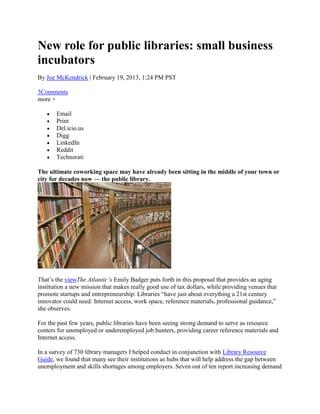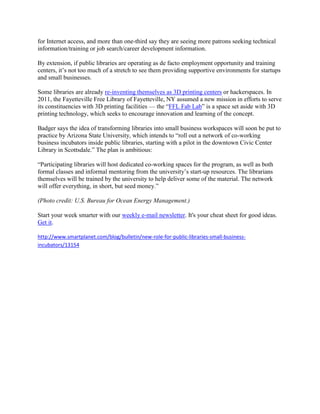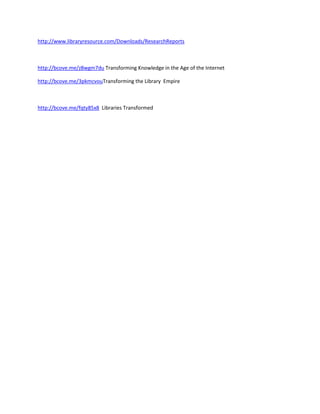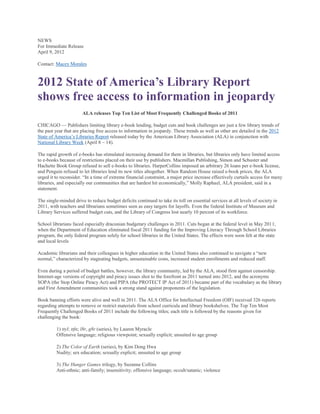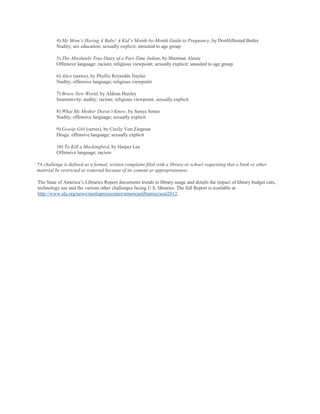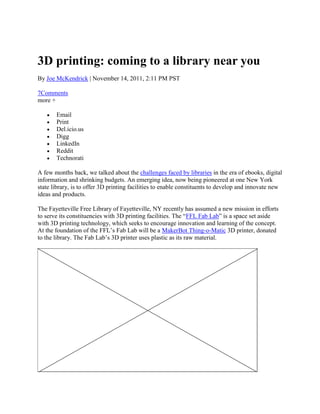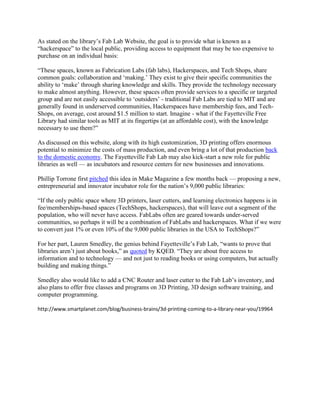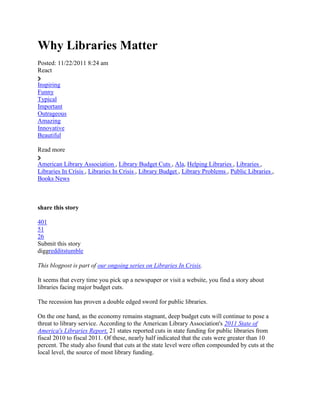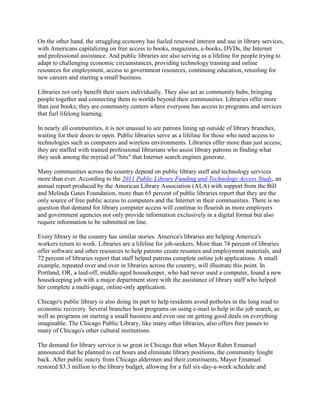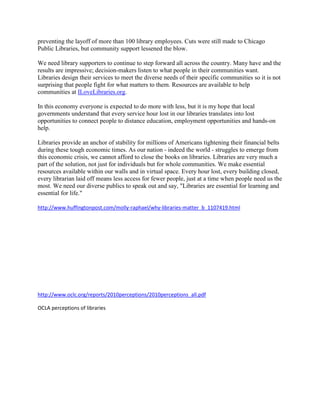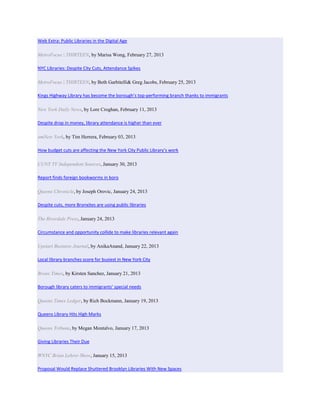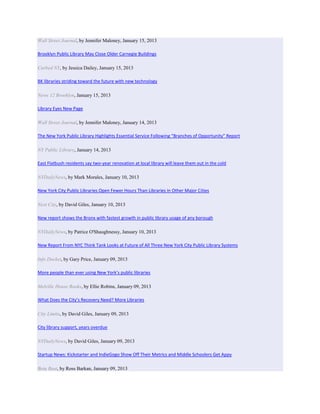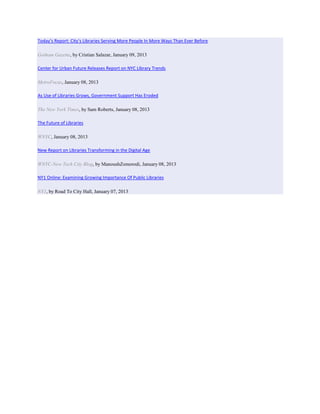Arizona State University is launching a new initiative called the Alexandria Network that will turn public libraries into co-working spaces and business incubators for entrepreneurs. The program will start with a pilot location at the Scottsdale Public Library and expand to 6-8 additional libraries. Through the network, libraries will offer dedicated co-working spaces, classes on business topics, and librarians trained to provide guidance to entrepreneurs on accessing resources. The goal is to make entrepreneurial support more accessible beyond traditional startup hubs and appeal to underserved groups like older entrepreneurs.
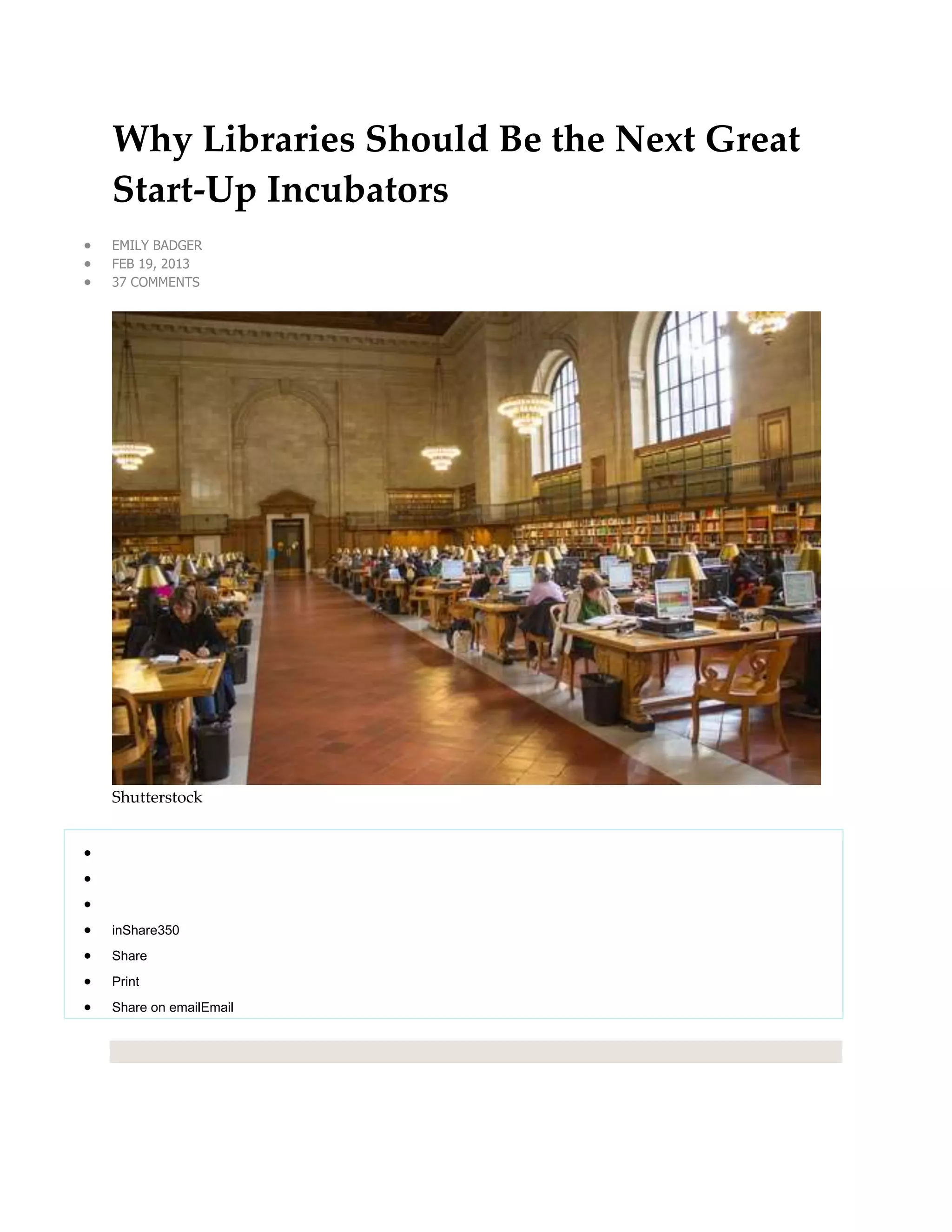
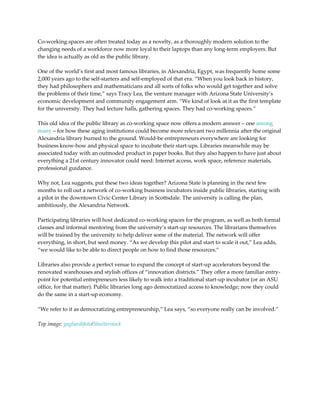
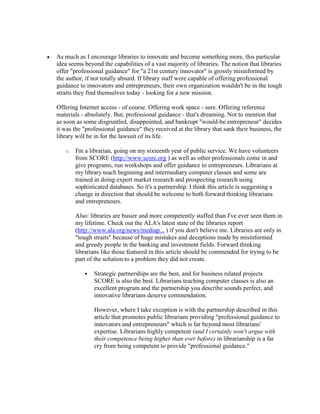
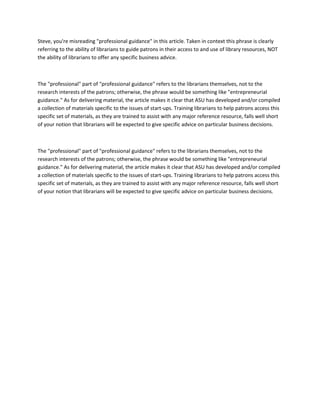

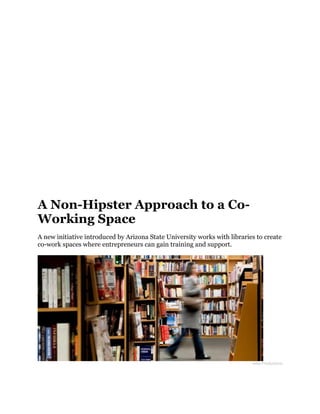
![Though myriad co-work spaces already operate in public libraries across the U.S., Arizona
State University is taking it to the next level.
Arizona State University’s Venture Catalyst start-up unit and the Scottsdale Public Library
System have announced the introduction of the Alexandria Network, a system of co-work
spaces for entrepreneurs in public libraries across Arizona. What's novel? The program will
collaborate with libraries to reach entrepreneurs who may be less savvy than their peers and
actually train library staff to deal with entrepreneurs.
“A lot of co-working spaces are targeting a particular type of person--this is more broad,"
Gordon McConnell, Assistant Vice President of Innovation, Entrepreneurship and Venture
Acceleration at ASU told Inc. "It’s probably for people that wouldn’t go to hipster co-
working spaces. It’s great that those are happening—they’re an important foundation level
to entrepreneurship. This is democratizing it a little bit."
McConnell also hopes the co-work spaces will be appealing to those among the growing
population of entrepreneurs over age 50.
“Those are the people we’re trying to target, and they’ll be geographically spread out,” he
added.
The pilot space will open in the Scottsdale Civic Center Library in early April, at which time
the initiative also expects to announce the opening of six to eight more locations.
In addition to the work space, the library staff will be trained to provide basic assistance to
those who visit the spaces seeking guidance on starting a business. Workshops on topics
such as "Business Models vs. Business Plans" and "Legal Concerns for Startups" are
currently open to both entrepreneurs and the library staff members learning to help them.
In response to the new intitiave, McConnell said, "[Library staff] were like, 'Yeah, this is
great. We need to change. We don’t have this background in working with start-ups, you can
support us.'"
http://www.inc.com/kathryn-dill/beyond-the-books-arizona-libraries-welcome-new-entrepreneurs.html](https://image.slidesharecdn.com/readingsandvideos-130315155642-phpapp02/85/Readings-and-videos-7-320.jpg)
